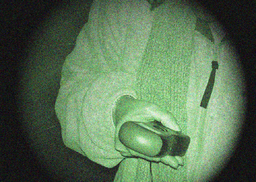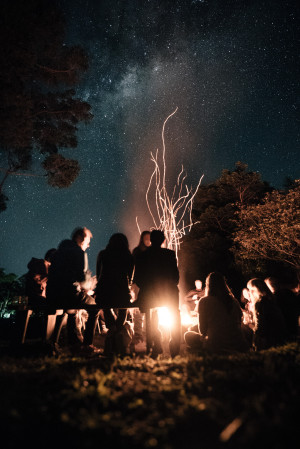Within the paranormal community, there are always going to be skeptics, but some of those skeptics actually err on the side of disbelievers—this is a good thing, it’s always better to have a healthy level of doubt in order to pursue evidence without any bias. There have been numerous theories to explain the paranormal phenomena that affect certain people, including but not limited to the natural phenomenon of sleep paralysis, sleep deprivation, drug use, temporal lobe epilepsy, and a psychotic state. This explanation states that ghosts are simply the result of hallucinations or illusions that are produced by the brain when it’s not in a fully alert state. So, what does this mean for the whopping 45% of Americans who believe in ghosts and other supernatural beings?
Evidence Collection in Paranormal Investigation
Something that is considered part of a range of scientific data collection and regularly used among those who are seeking to find evidence of the existence of ghosts, is the EVP, or electronic voice phenomena. EVPs utilize audio recordings to capture ambient sounds during an investigation, then are later reviewed for messages from the beyond. The general consensus is that these audio recordings can register sounds that are inaudible to the human ear, with the understanding that any voices or brief sounds being captured would be ghostly in nature. To believers, EVP recordings seem like incontrovertible evidence of communications from beyond. The problem with this is that, given the opportunity for bias, the content of a recording can be highly suggestive. Without any suggestion from peers, research shows that people cannot agree to what they hear in “conclusive” EVP recordings. This brings down the ability to rely upon recordings as evidence since there can be no clear consensus upon what it is really evidence of aside from pareidolia—the tendency to perceive human characteristics in meaningless perceptual patterns. Combining the illusory quality of EVPs, as well as the misuse of other scientific equipment to investigate ghosts, it’s not difficult to see how scientists can easily debunk any evidence that has been provided by amateur and professional paranormal investigators alike.
Considering all of the scientific data to back the assertion that ghosts don’t exist, there are substantial numbers of people who still believe in them worldwide. The beginning of televised paranormal investigations has broadened that number significantly and opened up the ability to talk about paranormal subjects without too much blowback from skeptics. There are, however, tendencies to overdramatize events and investigations by some televised paranormal investigative teams—such people seem to be more oriented in the publicity and making events more fantastical than they truly are, which ends up leading to more skepticism instead of belief in the tangible evidence. What does this mean for the believability factor of investigative teams that are supposedly attempting to gather evidence while staying unbiased in the end result? It really means that any factual evidence that may be provided to give any credibility to the existence of ghosts or spirits. Unfortunately, some shows that continue to air are clearly for entertainment purposes only, such as Ghost Adventures, where any evidence being collected is presented with positive bias in favor of those who collected it. The problem with these shows is that they present themselves as true investigative paranormal teams but go to lengths to overdramatize everything they do. This is not to say that they don’t have their own basic value as entertainment alone, they just don’t possess merit as a source of proof when their evidence is bias-skewed EVP recordings.
So, if ghosts aren’t real, then why do ghost stories seem so common? Well—there are justifiable explanations for ghost stories, whether or not you believe in ghosts it’s pretty much the same answer. Ghost stories exist because people have always needed the ability to relate their real-life experiences. Whether the reports of ghosts have been a result of scientifically explained phenomena, or they’re actual occurrences, these experiences can be incredibly emotional. Were the original tellers of the tale communicating their experiences due to an incredibly heart-warming reunion with their beloved late spouse, or was it a frightening confrontation with a ghostly predator? These are stories that people ache to tell others as if to get a weight off of their chest, or to stop feeling so alone in their experiences. Human connection drives ghost stories and it doesn’t hurt that they’re an amazing source of entertainment.

Georgia-based author and artist, Mary has been a horror aficionado since the mid-2000s. Originally a hobby artist and writer, she found her niche in the horror industry in late 2019 and hasn’t looked back since. Mary’s evolution into a horror expert allowed her to express herself truly for the first time in her life. Now, she prides herself on indulging in the stuff of nightmares.
Mary also moonlights as a content creator across multiple social media platforms—breaking down horror tropes on YouTube, as well as playing horror games and broadcasting live digital art sessions on Twitch.


